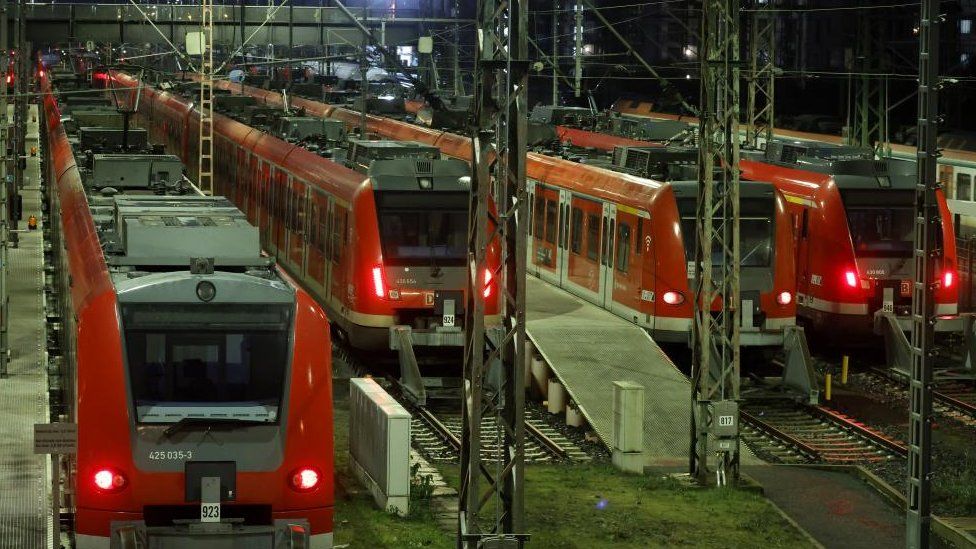ARTICLE AD BOX
 Image source, RONALD WITTEK/EPA-EFE/REX/Shutterstock
Image source, RONALD WITTEK/EPA-EFE/REX/Shutterstock
Regional trains ground to a standstill across much of the German rail network with a strike planned for six days
Train drivers across Germany have begun a strike that is set to last for six days, their longest stoppage on record.
The walk-out, called by the GDL rail drivers' union, hit passenger trains from 02:00 on Wednesday but goods-train drivers were also involved.
Millions of Germans were caught up in the action as the union escalated a long-running dispute with state-owned Deutsche Bahn.
The latest strike marks the fourth round of action since November.
The union is seeking higher wages to make up for a rise in inflation as well as a cut in the working week from 38 to 35 hours with no cut in salary.
Deutsche Bahn (DB) has introduced an emergency timetable until the strike ends at 18:00 on Monday.
The stoppage is unprecedented on Germany's railways, with passenger trains affected for 136 hours. For the first time, train services will be hit by the strike during a weekend.
Big traffic jams were reported in cities such as Hamburg where drivers were already preparing to contend with a farmers' protest involving 100 tractors.
Regional and suburban S-Bahn rail services were badly affected, and 80% of long-distance trains were cancelled.
The rail company and ministers have complained the extended industrial action is hitting the German economy hard, as well as the travelling public.
Tanja Gönner, who is head of the Federation of German Industries, warned that it was "not unrealistic" that a six-day strike could cost the economy up to €1bn. Germany is also a significant hub for European goods traffic.
Transport Minister Volker Wissing appealed to the union to find a compromise through mediation, although he accepted there was little chance for the moment of a solution.
"Passengers are currently having to deal with a highly stressful situation, and meanwhile there are no negotiations going on," he told Deutschlandfunk radio.
"If things are so deadlocked that people evidently can longer talk to each other, then we urgently need mediation or arbitration."
A YouGov survey of more than 4,000 adults in Germany suggested that only 34% understood what the strike was about, with another 59% saying they had no understanding of it.
Talks between the union and DB have dragged on since the start of November, but the company has rejected demands for a three-hour cut in the working week, proposing instead an optional model that involves one hour less with no cut in pay or a pay rise of 2.7%.
The GDL has turned that offer down.

 1 year ago
33
1 year ago
33








 English (US) ·
English (US) ·